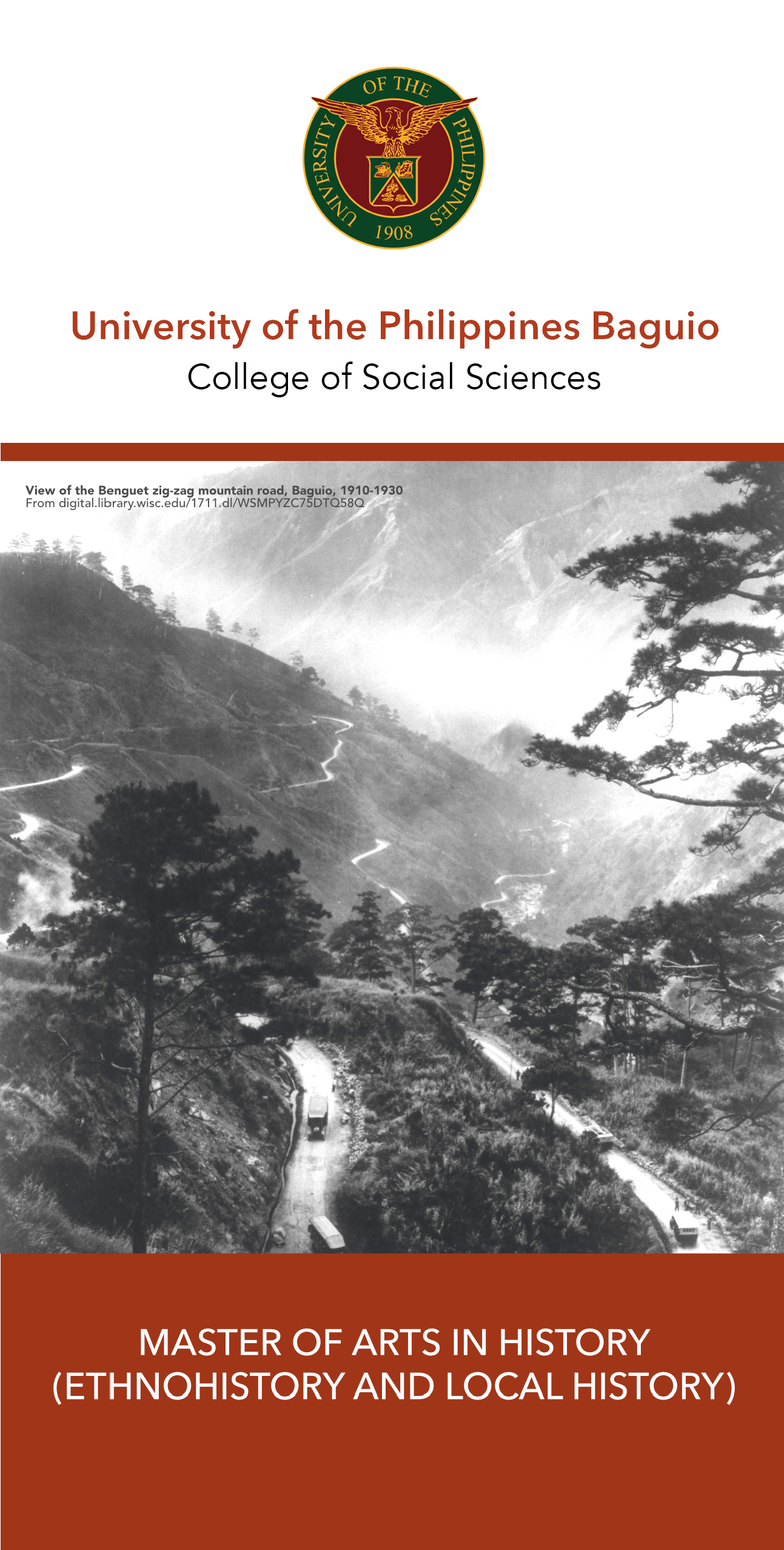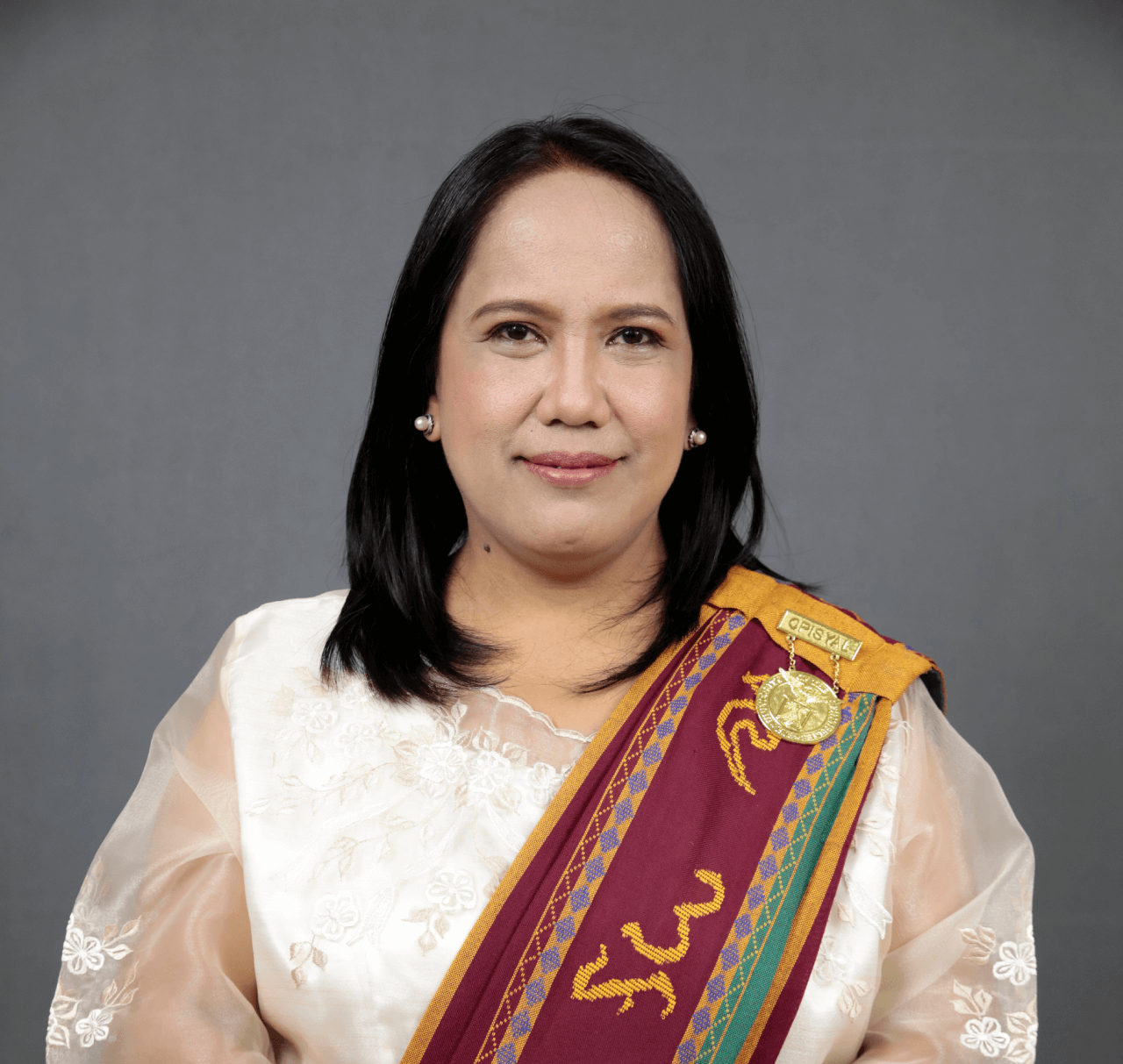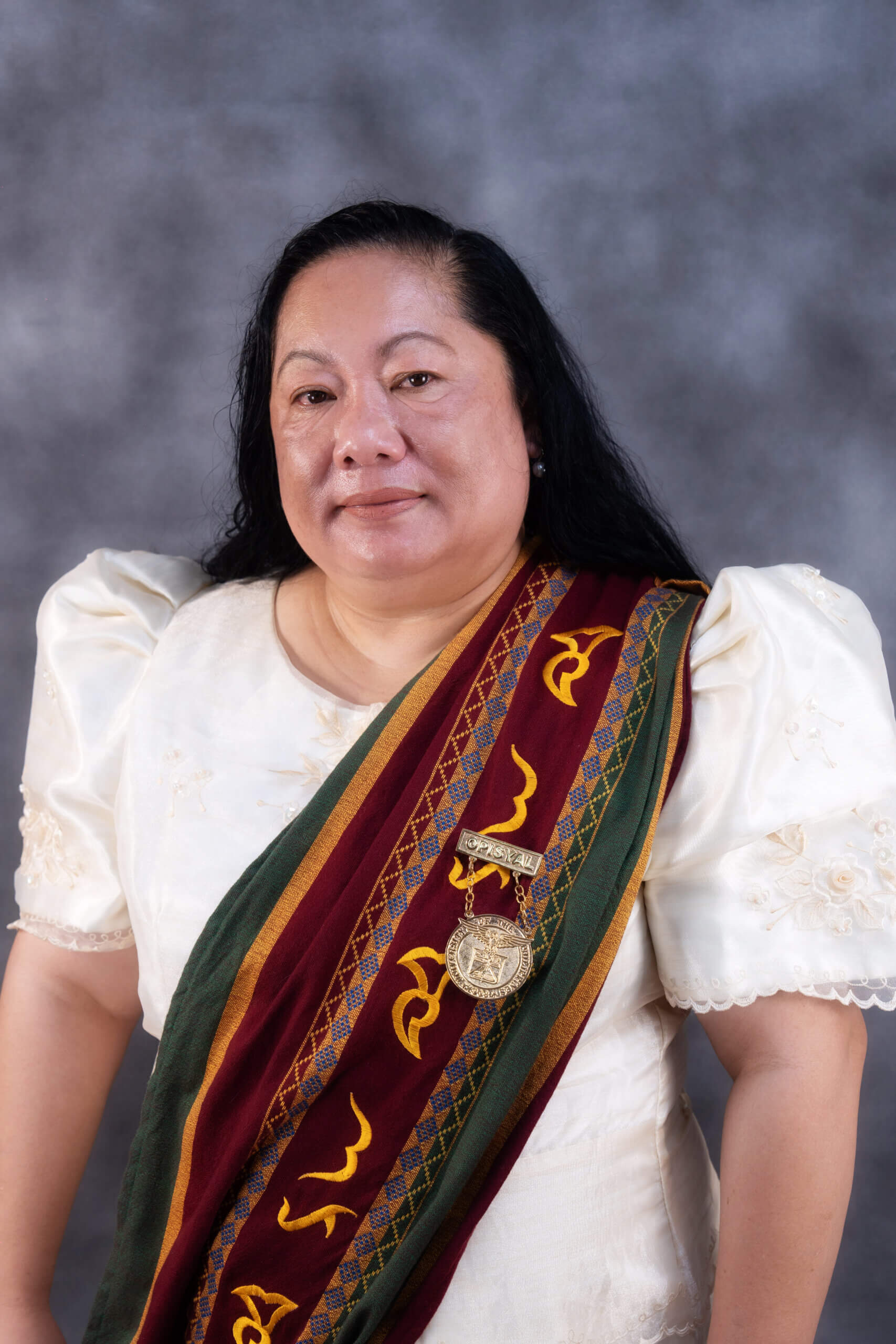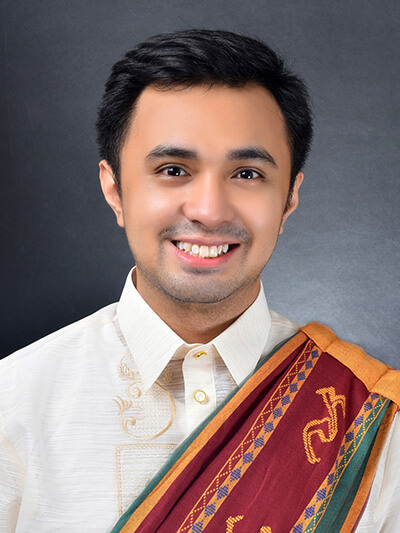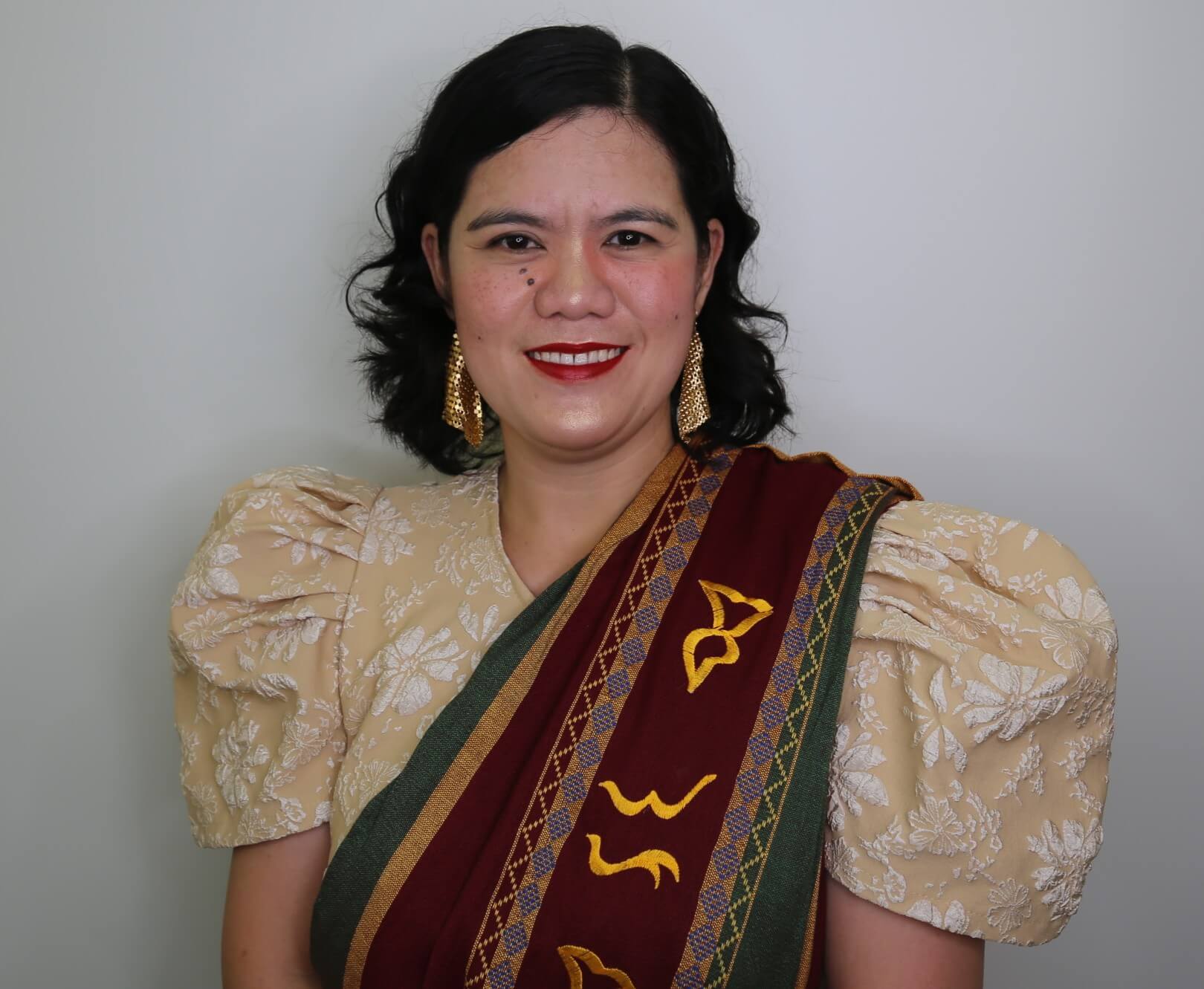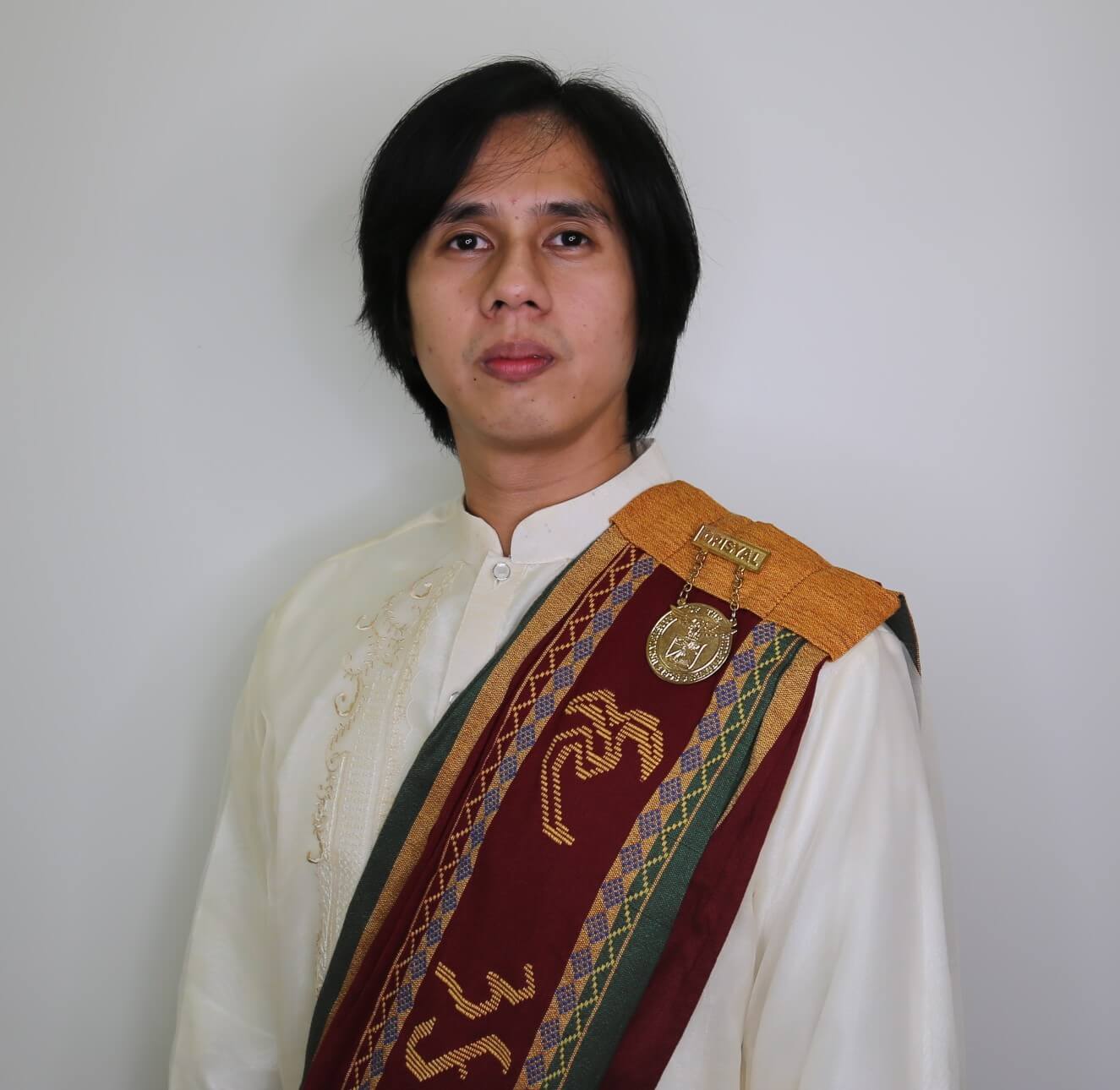Master of Arts in History
(Ethnohistory and Local History)
Program Description
The MA History program seeks to advance the History discipline in the College of Social Sciences through graduate-level instruction and curriculum innovation. The MA History program equips the students with theoretical and methodological foundations in the discipline of history and provides them with relevant exposure and training on ethnohistory and local history. Barber and Berdan (1998) define ethnohistory as “an interdisciplinary field that studies past human behavior and is characterized by a primary reliance on documents, the use of input from other sources when available, a methodology that incorporates historiography and cultural relativism, and a focus on cultural interaction.” The crux of ethnohistory as a field of study is change in a culture – its nature and causes. On the other hand Local History is a field of study with focus on a defined spatial unit, e.g., region, province, town, or locality.
Drawing from the niches of UP Baguio in ethnic and indigenous studies, the MA History integrates into the program the institution’s research strengths and expertise, and harmonizes interdisciplinary collaborations, by offering a set of courses that emphasize collaboration with other social science disciplines and auxiliary sciences.
The institution of the MA History program is in line with the vision of the University to develop itself as a graduate university, a research university, and a public service university. The need to institute such a program is also due to the pursuit of UP Baguio’s vision and the College of Social Science’s commitment to engaged scholarship, teaching, research and extension; and to sustain the delivery of innovative and relevant programs. In addition, instituting this program (Ethnohistory and Local History) is of particular importance especially to Northern Luzon and the Cordillera region, which lack a specifically disciplinal graduate degree offering in History.
OBJECTIVES
The MA History program is expected to produce graduates with the following competencies:
(1) Knowledge of the various forms of historical and historiographical inquiry and practice with a mastery of primary sources;
(2) Critical and creative thinking on the complexity of and multidisciplinarity in history;
(3) Ability to generate and communicate historical researches and related outputs;
(4) Integration of history to its applied and public functions; and,
(5) Appreciation of the various layers of human experience, from ethnic, local, and national histories, to their regional and global scales.
PROGRAM LEARNING OUTCOMES
Upon completion of the program, a graduate must be able to:
- examine the various forms of historical and historiographical inquiry and practice;
- apply critical and creative thinking on the complexity of and multidisciplinarity in history;
- produce ethnohistorical and local history researches and related outputs that are based on well-defined historical problems, sound methodologies and historical evidence;
- integrate history to its applied and public functions, specifically on the areas of teaching, cultural and heritage work, and public service; and,
- recognize the pluralities of human experience in relation to the several layers of community-building (i.e., ethnicities and localities, nation, region, and the international community).
ADMISSION REQUIREMENTS
To be considered as a student for the MA History program, applicants must possess:
- A bachelor’s degree from a CHED-recognized institution of higher learning;
- A general weighted average of 2.25 or better or its equivalent in the baccalaureate degree;
- In the case of a foreign applicant whose native language or whose medium of instruction in their secondary school was not English, a score of at least 500 in the paper-based Test of English as a Foreign Language (TOEFL), or at least 173 in the computerized form, or at least sixty-one (61) in Internet-Based Test [IBT] or a score of 6.0 in the International English Language Testing System (IELTS);
- A passing grade in the Scholastic Aptitude Examination which will be administered by the Office of Counseling and Guidance of the University of the Philippines Baguio; and
- Must pass the interview that will be conducted by the MA History Committee.
Documents to be Submitted for Application
These are the documents you need for a successful application. All these must be submitted to the Graduate Program Office (GPO) through courier or at the GPO on campus. Any inquiries will also be forwarded to them, and updates on calls for applications are released every semester.
- Duly accomplished Application Form with two passport size photographs. (This you can access by emailing the GPO);
- A non-refundable application fee subject to rates specified by the University of the Philippines Baguio;
- Other University requirements like medical clearance and other special admission requirements;
- Official transcript of undergraduate records (may be photocopies on condition that these are authenticated; final admission shall be based on verified documents);
- Two written recommendations with at least one from a former professor and three (3) Reference Report Forms – 1 from the applicant’s immediate supervisor and 2 from former professors;
- Application admission essay describing background, interest in program, and envisioned academic project (2-3 pages);
- For married women, photocopy of Marriage Certificate for the purposes of providing proof of name change from previous academic records;
- For foreign applicants whose native language or whose medium of instruction in their secondary school was not English, official proof of test scores.
PROGRAM STRUCTURE
The MA History program has a total of 36 units broken down according to the following components.
Core Courses (15u)
History Electives (9u)
Other Required History Courses (6u)
Electives (6u)
CORE COURSES (15u)
History 201. Philosophy of History (3u). Perspectives and approaches to the interpretations and writing of history
History 202. Historical Methodology (3u). Historical methodology and methods of historical research with emphasis on archival and oral history
History 203. Philippine Historiography (3u). Critical analysis of historiographies produced during and on different historical periods of Philippine history
History 204. Philippine Ethnohistory (3u). Historiographic analysis of primary sources on the histories of Philippine indigenous peoples with emphasis on the Cordillera
History 205. Local History (3u). Perspectives, approaches, methods, and sources on local history
ELECTIVES
Electives will be taken in consultation with the program adviser and may be taken in other CUs with graduate courses in History
Hist 209. Pre-16th Century Philippines (3u). Early communities in the Philippines from prehistoric times until pre-European contact in the 16th century
Hist 210. Colonial Philippines (3u). History of the Philippines from the Spanish, American, to the Japanese colonization
Hist 211. Filipino Nationalism (3u). Readings on primary and selected secondary sources on Filipino Nationalism from the 19th century to the Second World War
Hist 212. Contemporary Philippines (3u). Events, issues, and sources of Philippine history since the end of the Second World War
Hist 254. Southeast Asian History (3u). Themes and debates in Southeast Asian history and Historiography
History 255. Global History (3u). Selected theme(s) of social processes resulting from human interactions between and among societies and world regions across temporal and spatial contexts
History 260. Public History (3u). Concept and nature of public history and its practice in the Philippines
History 298. Special Topics (3u)*. Recent trends, issues, and areas in historical and historiographical inquiry and practice
*This may be taken twice provided that the topics are different. This subject will focus on topics like Historical Pedagogy, issues and interpretations of Philippine History, Northern Luzon and Cordillera Histories, History and the Social Sciences and other areas in history.
Other Required History Course
Hist 300. Master’s Thesis (6u). Thesis in History*
* Before enrollment, all academic requirements should have been fulfilled and proof of language proficiency (if necessary) should have been submitted.
CURRICULUM
A student in the program may pursue a regular load of 9-12 units per semester or a part-time load of 6 units per semester, and a thesis for 6 units for a total of 36 units.
FULL-TIME
| First Year | |||
| First Semester | No. of Units | Second Semester | No. of Units |
| Hist 201 | 3 | Hist 202 | 3 |
| Hist 203 | 3 | Hist 204 | 3 |
| Hist 205 | 3 | Hist Elective 2 | 3 |
| Hist Elective 1 | 3 | Elective 1 | 3 |
| Total no. of units | 12 | Total no. of units | 12 |
| Second Year | |||
| First Semester | No. of units | Second Semester | No. of Units |
| History Elective 3 | 3 | Hist 300* | 6 |
| Elective 2 | 3 | ||
| Total no. of units | 6 | Total no. of units | 6 |
| Total Units for the Program | 36 | ||
| *Student should have completed all course requirements before enrolling in History 300. Proof of language proficiency (when necessary) should be submitted prior to enrollment in thesis. | |||
PART-TIME
| First Year | |||
| First Semester | No. of Units | Second Semester | No. of Units |
| Hist 201 | 3 | Hist 202 | 3 |
| Hist 203 | 3 | Hist 204 | 3 |
| Total no. of units | 6 | Total no. of units | 6 |
| Second Year | |||
| First Semester | No. of Units | Second Semester | No. of Units |
| History 205 | 3 | History Elective 2 | 3 |
| History elective 1 | 3 | Elective 1 | 3 |
| Total no. of units | 6 | Total no. of units | 6 |
| Third Year | |||
| First Semester | No. of Units | Second Semester | No. of Units |
| History Elective 3 | 3 | History 300* | 6 |
| Elective 2 | 3 | ||
| Total no. of Units | 6 | Total no. of Units | 6 |
| Total Units for the Program | 36 | ||
| *Student should have completed all course requirements before enrolling in History 300. Proof of language proficiency (when necessary) should be submitted prior to enrollment in thesis. | |||
GET TO KNOW THE PROGRAM MORE!
FACULTY MEMBERS
Leah E. Abayao
Professor of History
Department of History and Philosophy
College of Social Sciences
Academic Background
Senior Fellow, The Frick Collection-New York City, USA
Research Fellow, Linden Museum – Stuttgart, Germany
Research Fellow, University of Michigan – Ann Arbor, USA
Visiting Scholar, Katholieke Universitet Leuven, Belgium
Ph.D. in History, University of the Philippines Diliman
M.A. Social Development Studies, University of the Philippines
B.A. Social Sciences Majors in Anthropology and History, University of the Philippines
Research Interests
Indigenous Knowledge, Community Heritage, Philippines Cordilleras, Indigenous Peoples
Extension Work
Go Global SDGs in Action Student Challenge (with York University), 2022 – present
International Indigenous Student Exchange Program (with York University, 2021 – present
CHED Kabadang Research and Publication Capacity Building, 2021 – present
External Evaluator, National Commission on Culture and the Arts (NCCA) Mapping Program, 2020 – present
Community Archives (with the National Archives of the Philippines), 2014 – present
Publications
ORCID 0000-0001-5505-336X
Scopus Author ID: 11940079500 & 57402054500
Abayao, Leah, Podruchny, Carolyn, Fong, Jimmy. Indigeneity and the Production of knowledges on Indigenous Peoples in the Philippines (forthcoming)
Ronan Q. Baculi, Giovanni M. Malapit & Leah E. Abayao. 2022. Atmospheric pressure plasma deposition of silver nanoparticles on bark fabric for bacterial growth inhibition, The Journal of The Textile Institute, DOI: 10.1080/00405000.2021.2024378
Abayao, Leah, Akanisi Sobusobu Tarabe, Vuthy Lic, Prasert Trakansuphakon. 2020. Forest Policies and Indigenous Peoples’ Traditional Knowledge and Practices on Sustainable Forest Management: Fiji, Cambodia and Thailand. Tebtebba Foundation.
Abayao, Leah. 2019. Indigenous Studies as a platform for Internationalization in Higher Education. Proceedings of the Indigenous Peoples Education conference. University of the Philippines Baguio.
Abayao, Leah. 2018. Cordillera Objects in the Philippines Collection (of the Linden Museum). In Co-creation Labs: Illuminating Guests, Artists and New Voices in European Museums of World Culture. Sanstein Verlag and Linden- Museum Stuttgart.
Abayao, Leah. 2014. Spirituality and the (re) constructions of indigenous traditions. InUnsettling Discourses: The Theory and Practice of Indigenous Studies. Cordillera Studies Center, UP Baguio. 2014; Pages 127-134.
Abayao, Leah.2005. Mainstreaming Intercultural Education: the case of UP Baguio’s Educational Assistance Program, Higher Education Policy 18, 409–411. Palgrave.
Abayao, Leah. 2006. Articulating Indigenous Peoples’ Culture in Education. In Indigenous Education and Empowerment: International Perspectives. Eds. Duane Champagne and Ismael Abu-Saad. Alta-mira Press, Oxford UK.
Abayao, Leah. 2001. Indigenous knowledge on Forest management and Conservation of Medicinal Plants among the Ifugaos of Northern Luzon. KASARINLAN Journal, University of the Philippines Press.
Abayao, Leah. 2000. Ifugao Ethnomedicine in History. The Journal of History. Volume 46, No. 1-4.
Abayao, Leah, Sombolinggi, Rukka. 2010. Indigenous Peoples and the dynamics of development programs: The case of the East Kalimantan Communities Empowerment Program (EKLCEP). In Assessing the first decade of the World’s Indigenous People, 1995-2004. Vol. 1: The Southeast Asia Experience.
Abayao, Leah. 2009. Mayoyao Ethnohistory, 1850 – 1960. The Journal of History. “Philippine Ethnohistories: The Luzon Cordillera and Beyond”. Volume LV, January – December.
Leah E. Abayao
Professor
Professor of History Department of History and Philosophy College of...
Charita A. Delos Reyes
Position: Professor
Categories: DHPH
Professor of History
Department of History and Philosophy
College of Social Sciences
Academic Background
Exchange Visiting Scholar for Advanced Research (PAEF-Fulbright Commission), The University of Maryland at College Park, 2017-2018
Visiting Scholar, The University of Michigan at Ann Arbor, Center for Southeast Asian Studies, 2017
Ph.D., History, University of the Philippines, 2014
Exchange Visiting Scholar (PAEF-Fulbright Commission), The George Washington University, Sigur Center for Asian Studies, Elliott School of International Affairs, Washington D.C., 2011-2012
M.A., History, University of the Philippines, 2004
M.A., Educational Administration and Supervision, Saint Louis University, 2001, cum laude
B.S., Political Science, Saint Louis University, 1989, magna cum laude
Publications
Delos Reyes, Charita Arcangel. “Educating Mokimok and Chainus: The Ibaloys at the Bua School, 1901-1940.” In CHIVA: A Reader on Ibaloy History and Culture, edited by Jimmy B. Fong. UP Baguio: Cordillera Studies Center, 2017, pp. 35-60.
“Decompartmentalizing History and the Problem of Historical Inquiry.” Social Science Teaching, Research and Practice: Consolidating Lessons and Charting Directions 2. Edited by Lorelei Crisologo. Mendoza. Baguio City: College of Social Sciences and the Cordillera Studies Center, University of the Philippines Baguio, 2016, pp. 85-99.
“Mula sanitarium tungong paaralan: Kasaysayan ng Pagbabagong-anyo ng Kaligiran ng Lungsod ng Baguio.” Sa Shuntug: Mga Kabundukan sa Kasaysayan at Kalinangang Pilipino. Patnugot, Lars Raymund C. Ubaldo. Manila: NCCA at ADHIKA ng Pilipinas, Inc., 2015: 66-78.
“The Genesis of a University Town: The Case of Baguio City, 1946-1973.” Conference Proceedings of the International Symposium on Education and Psychology, ISEP 2014-Fall 2014, Meiji University, Surugadai Campus, Tokyo, Japan, November 12-14, 2014. Published by the Knowledge Association of Taiwan (KAT), Taipei, Taiwan. ISSN 2236-6275 (CD Version)
“Ang Information and Communications Technology (ICT) at ang Neokolonyal na Eduksayon sa Pilipinas (1945-Kasalukuyan).” In Kasarinlan: Philippine Journal of Third World Studies 17, no. 2 (2002): 139-166.
Charita A. Delos Reyes
Professor
Professor of History Department of History and Philosophy College of...
Richard Chu
Position: Visiting Professor for MA Social and Development Studies
Categories: DHPH, Visiting Professors for PhD Indigenous Studies
Visiting Professor (Midyear, AY 2022-2023)
MA Social and Development Studies
University of Massachusetts Amherst
Dr. Richard Chu, a faculty member of the University of Massachusetts Amherst Department of History, taught a mixed MA Social and Development Studies class this midyear term. The class was composed of students from the MA SDS and MA History (Ethnohistory and Local History) programs of the College of Social Sciences.
Richard Chu
Visiting Professor for MA Social and Development Studies
Visiting Professor (Midyear, AY 2022-2023) MA Social and Development Studies...
Jose Mathew P. Luga
Assistant Professor in History
Department of History and Philosophy
College of Social Sciences
Academic Background
M.A., History, University of the Philippines Diliman
B.A., Social Sciences (Major in History, Minor in Psychology), 2012
Research Interests
Local History (Baguio and Northern Luzon)
Life History
Japanese Occupation
Academic Organization
Member, Caloocan Historical and Cultural Studies Association
Extension Services
Salikultura: Sali Kayo sa Kultura ng Research. Organized by the National Commission for Culture and the Arts. Via Zoom Video Conference, 26 November 2021.
“Gintong Kuwento ni Yamashita” segment in Kapuso Mo, Jessica Soho. Aired April 16, 2017.
Publications
Luga, Jose Mathew P. & Abbey Rose A. Celada. Pagtugon sa Hamon ng Kasaysayan: Araling Asyano 7. Makati City: DIWA Learning Systems, Inc., 2021.
____ & Abbey Rose A. Celada. Pagtugon sa Hamon ng Kasaysayan: Araling Asyano 7, Gabay sa Pagtuturo. Makati City: DIWA Learning Systems, Inc., 2021.
“Periodizing the Japanese Occupation: Baguio City at the Eve of Liberation, 1944-1945.” Journal of Philippine Local History and Heritage 6, no. 2. August 2020.
“Alimokon: Mateo Noriel Luga, the Life History of a Revolutionary.” Journal of Philippine Local History and Heritage 3, no. 2. August 2017.
Jose Mathew P. Luga
Assistant Professor
Assistant Professor in History Department of History and Philosophy College...
Analyn B. Muñoz
Assistant Professor in History
Department of History and Philosophy
College of Social Sciences
Academic Background
Candidate, Ph.D. in History, University of the Philippines Diliman
M.A., in History, University of the Philippines Diliman, 2012
B.A., History, University of the Philippines Diliman, 2005
Research Interests
Environmental History, Cultural History, Women’s History, Japanese Occupation of the Philippines
Academic Organizations
Treasurer/Board member of Asosasyon ng mga Dalubhasa, May Hilig, at Interes sa Kasaysayan (ADHIKA) ng Pilipinas, Inc.
Extension Services
Balik Kasaysayan Program (Department of Education)
Community Archives (with the National Archives of the Philippines)
Publications
“Ang Ilog Pasig bilang Daluyan ng Sakit sa Kasaysayan at Panitikang Pilipino,” Araling Pasig monograph. Limbagang Pangkasaysayan, 2021.
“Pangayawan sa Ilog Pasig ng mga Bisaya sa Panahon nina Salcedo at de Goiti,” Pangangayaw: Ang Pangingibang Bayan at Paghahanap ng Ginhawa sa Kasaysayan at Kalinangang Pilipino ng ADHIKA ng Pilipinas, Inc. and National Commission for Culture and the Arts, 2021.
“Gerilya, Pamahalaan, at Sibilyan: Kuwento ng Pagmamalasakitan sa Gitna ng Digmaan,” Tambayayong: Ang Bayanihan sa Kalinangan at Kasaysayang Pilipino ng ADHIKA ng Pilipinas, Inc. and National Commission for Culture and the Arts, 2020.
“Missing Pasig: The Manila River during the Late Nineteenth Century and Contemporary Times,” Manila: History, Culture, and Heritage by Manila Studies Association, Inc., National Commission for Culture and the Arts and Philippine National Historical Society, 2020.
“Mula Philippine Constabulary Tungong Bureau of Constabulary: Pagbabagong-Mukha ng Institusyon sa Panahon ng Hapon,” KAGAWARAN: Mga Institusyon at Paglilingkod-bayan sa Kasaysayan at Kalinangang Pilipino, 1898 – 1946 ng ADHIKA ng Pilipinas, Inc. and National Commission for Culture and the Arts, 2017.
“Challenges and Issues in Reconstructing the History of Aeta Guerrillas of Luzon during the Japanese Occupation” in Social Science Teaching, Research and Practice: Consolidating Lessons and Charting Directions, vol. 2, (2016).
“Kontemporanyong Timog Silangang Asya sa Napapanahong Diskurso ng Etnisidad, Border, at Estado,” (Dr. Leah Enkiwe-Abayao, co-author), Saliksik: Saysay ng Salaysay: Multidisiplinaryong E-Journal, Tomo 4 Bilang 2, Nobyembre 2015.
“Ang Ugnayang Maynila-Morong sa Kasaysayan ng Pambansang Pakikidigma ng mga Pilipino” sa Shuntug: Mga Kabundukan sa Kasaysayan at Kalinangang Pilipino ng ADHIKA ng Pilipinas, Inc. and National Commission for Culture and the Arts, 2015.
“Ang Diwa ng Gerilyaismo sa Panahon ng Ikalawang Digmaang Pandaigdig sa Bayan ng Morong”, Kasaysayang Pampook: Pananaw, Pananaliksik, Pagtuturo UP Likas, 2012.
“Ang Kababaihang Marking ng Morong, Rizal” Daluyan-Espesyal na Isyu sa Kasaysayan, 2010.
Analyn B. Muñoz
Assistant Professor
Assistant Professor in History Department of History and Philosophy College...
Luis Zuriel P. Domingo
Assistant Professor in History
Department of History and Philosophy
College of Social Sciences
Academic Background
M.A., History, University of Santo Tomas, 2022
A.B., History, University of Santo Tomas, cum laude, 2015
Research Interests
History of Nationalism in Southeast Asia, Revolutionary Movements, Cold War
Academic Organizations
Association for Asian Studies (AAS)
Association of Southeast Asian Studies (ASEAS-UK)
New York Southeast Asia Network
London School of Economics and Political Science Southeast Asia Centre – Early Career Researcher Network
Philippine National Historical Society
Publications
Selected Publications:
2023. Book Review of ‘What Kapitan Tiago Served and Padre Damaso Ate: Studies on Jose Rizal, His World, and His Works’ by Jose Victor Z. Torres. Kyoto Review of Southeast Asia 35 (March).
2022. Book Review of ‘Diasporic Cold Warriors: Nationalist China, Anticommunism, and the Philippine Chinese, 1930s-1970s’ by Chien-Wen Kung. LSE Review of Books and LSE Southeast Asia (October).
2022. Book Review of ‘Empire’s Mistress, Starring Isabelo Rosario Cooper’ by Vernadette Vicuña Gonzalez. Sojourn: Journal of Social Issues in Southeast Asia 37:2 (July).
2021. Book Review of ‘Underground Asia: Global Revolutionaries and the Assault on Empire’ by Tim Harper. Asian Studies: Journal of Critical Perspectives on Asia 57:2 (September).
2021. Korean pop music a threat to contemporary Filipino identity? Globalization, Nation, and Interrogations in Philippine Culture and Identity. Asia Review 11:2 (August).
Selected Public Writing:
2023. A history of Philippine Independence Day. LSE Southeast Asia, 12 September.
2023. The Women’s World Cup and understanding Filipino-America. Rappler, 03 August.
2023. Ascending hill station. Ti Similla, April-June.
2022. On the red-tagging of bookshops. Rappler, 23 March.
2022. On the lack of public historians and intellectual spaces. Rappler, 02 January.
2021. On the Filipino obsession with patriotism and heroism. Rappler, 07 December.
Luis Zuriel P. Domingo
Assistant Professor
Assistant Professor in History Department of History and Philosophy College...
For inquiries, contact the UP Baguio Graduate Program Office:
gpo.upbaguio@up.edu.ph
UP Drive, Governor Pack Road, Baguio City Benguet, Philippines, 2600

